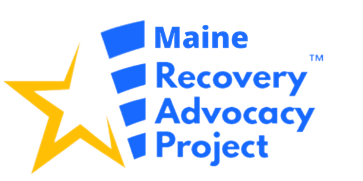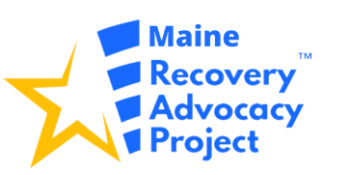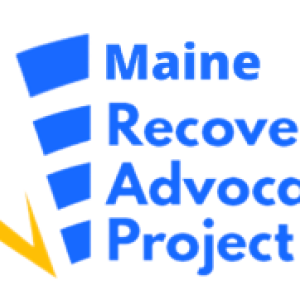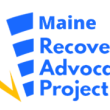Maine Recovery Advocacy Project, lawmakers to address state’s addiction crisis
As overdoses reach record levels across Maine, The Maine Recovery Advocacy Project (ME-RAP), along with other advocates and legislators, today is urging action on four bills to reform how Maine deals with addiction and act on solutions that will make an impact across the state. The state of Maine is on track to see record-breaking overdose deaths in 2020, with the Third Quarter Drug Overdose Report, released by the Office of Attorney General and the Office of Chief Medical Examiner last week, showing that there were 380 deaths caused by drugs in the first three quarters of 2020, the same number of total deaths in 2019. Right now, Maine is on course to lose as many people to overdose as it did COVID-19 in 2020.
ME-RAP, a grassroots network of people and organizations across Maine released a list of priorities for the 130th Maine Legislative Session focused on redefining and reimagining justice, access, connection, and recovery. The agenda is backed by a bipartisan group of Maine lawmakers – including Representative Anne Perry (D-Calais), Senator Chloe Maxmin (D-Nobleboro), Rep. Kenney (R-Knox), and Representative William D. Pluecker (I-Warren) - who have heeded these calls and are working with ME-RAP to propose legislation that will help Mainers living with addiction and who are in recovery, including:
LR 933: This bill would restructure drug sentencing laws to make possession of personal use amounts of drugs a civil offense. A person charged with this civil office would be able to choose between a fine or receiving an assessment for treatment. (An Act To Amend the Drug Laws by Decriminalizing the Individual Use or Possession of Schedule W, X, Y and Z Drugs -- Rep. Anne Perry - D-Calais)
LR 1358: This bill would create $1,000,000 in grant funding to open recovery community organizations in the seven Maine counties that currently do not have one: Kennebec, York, Waldo, Hancock, Franklin, Somerset, and Piscataquis counties. (An Act To Expand Recovery Organizations Throughout Maine -- Sen. Chloe Maxmin - D-Nobleboro)
LR 1358: This bill would lower the cost of phone calls in Maine's jails and prisons from an average of $5 per 15-minute call to about $1.50. Two free phone calls a week would also be provided to people who are incarcerated to ensure that everyone has the ability to connect with their families, community, and recovery support services. (An Act To Protect Families from Excessive Telephone, Video, and Commissary Charges in Maine Jails and Prisons-- Rep. MaryAnne Kinney - R-Knox)
LR 890: This bill would change stigmatizing words like "drug user" and "inmate" in Maine statutes to more person-centered language like "person who uses drugs" and "resident." (An Act To Identify and Replace Certain Stigmatizing References throughout the Maine Revised Statutes -- Rep. Bill Pluecker - I-Warren)
“For too long the people who are directly or indirectly impacted by addiction, overdose, recovery, and the war on drugs have been left out of the public discourse about solutions,” said Courtney Allen, ME-RAP’s Policy Director. “In Maine, that ends today. ME-RAP is bringing people across the state together to advocate for people in recovery, enhance recovery-friendly policies, and ultimately end overdose death. We are working with our state elected officials to restructure drug sentencing laws, focus on access to treatment, fund recovery community organizations in every county in Maine, reduce the cost of phone calls for people in jail, and replace stigmatizing language in all of Maine’s laws.”
“Mainers from across our state are calling for changes to how to approach the public health crisis of addiction to put recovery first – including members from our law enforcement community who are adamant that many people being detained in our criminal justice system should actually be in treatment,” said State Rep. Anne Perry. “How do we do this? We can start by decriminalizing minor drug charges, and find ways that we can connect these individuals with the drug treatment resources they need instead of putting them in our jails and prisons.”
“In rural Maine, we struggle with access--to healthy food, transportation, affordable healthcare...and support systems for our neighbors in recovery,” said State Sen. Chloe Maxmin. “We need solutions that are by and for rural Maine, which is why I'm proud to sponsor a bill that would provide funding for every county to ensure that they have a recovery center.”
“It is so important for the person in or seeking recovery, as well as the state who wants to support them, that we talk about the people who face this incredible challenge using the right language,” said State Rep. Bill Pluecker. “Instead of stigmatizing and ostracizing people with the words we label them with, we need to come together to recognize the personhood and value of each individual and their recovery for the entire state. This bill is one small step towards holding them up as being so important to the vibrancy and diversity of our communities.”
ME-RAP organizers and state lawmakers will hold a virtual call that is open to the public on Friday, Jan. 29 at 7 pm to discuss the group’s platform and bills the legislators are proposing. Registration is required and can be done here.
Event Date
Address
United States

























